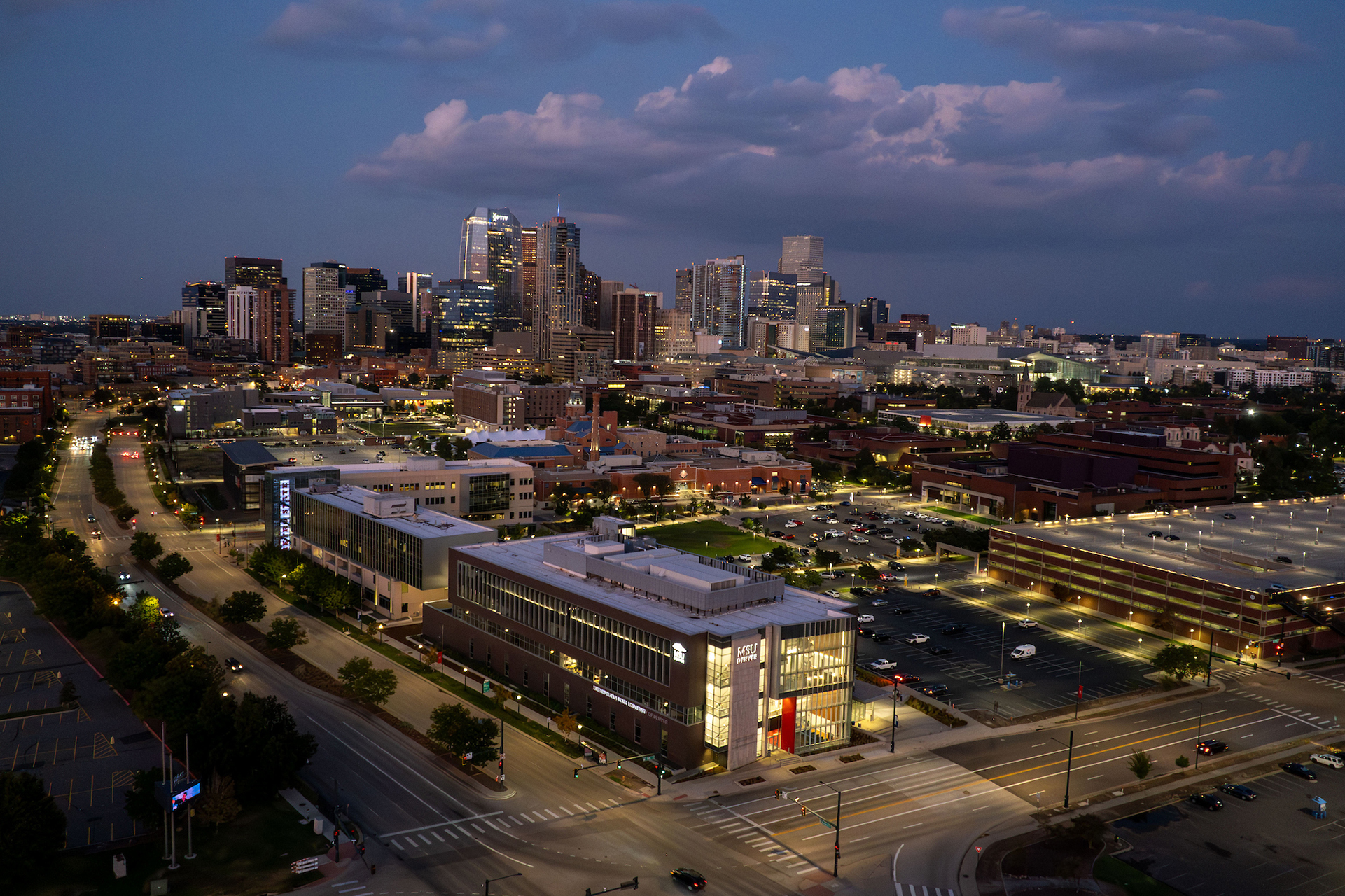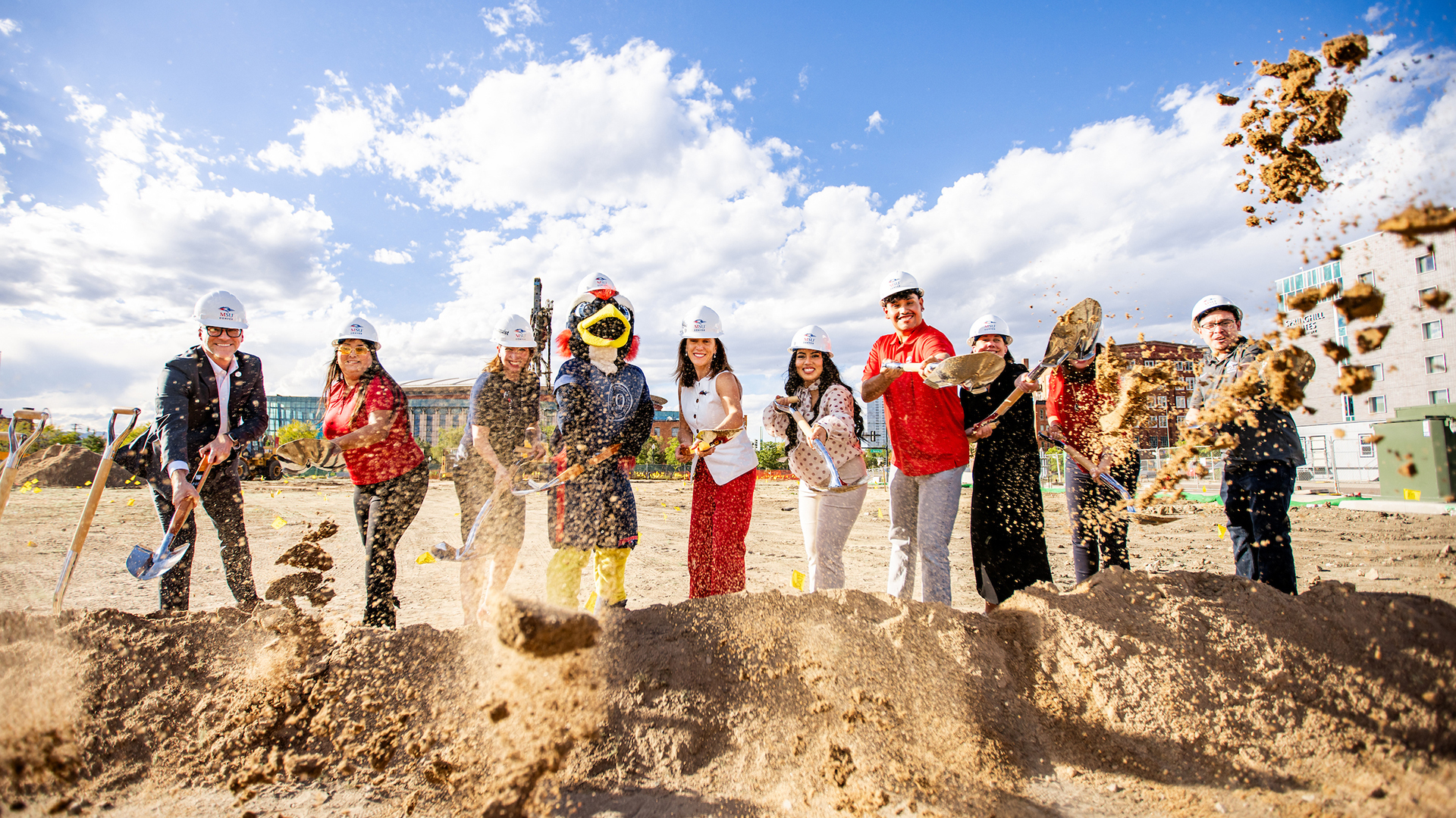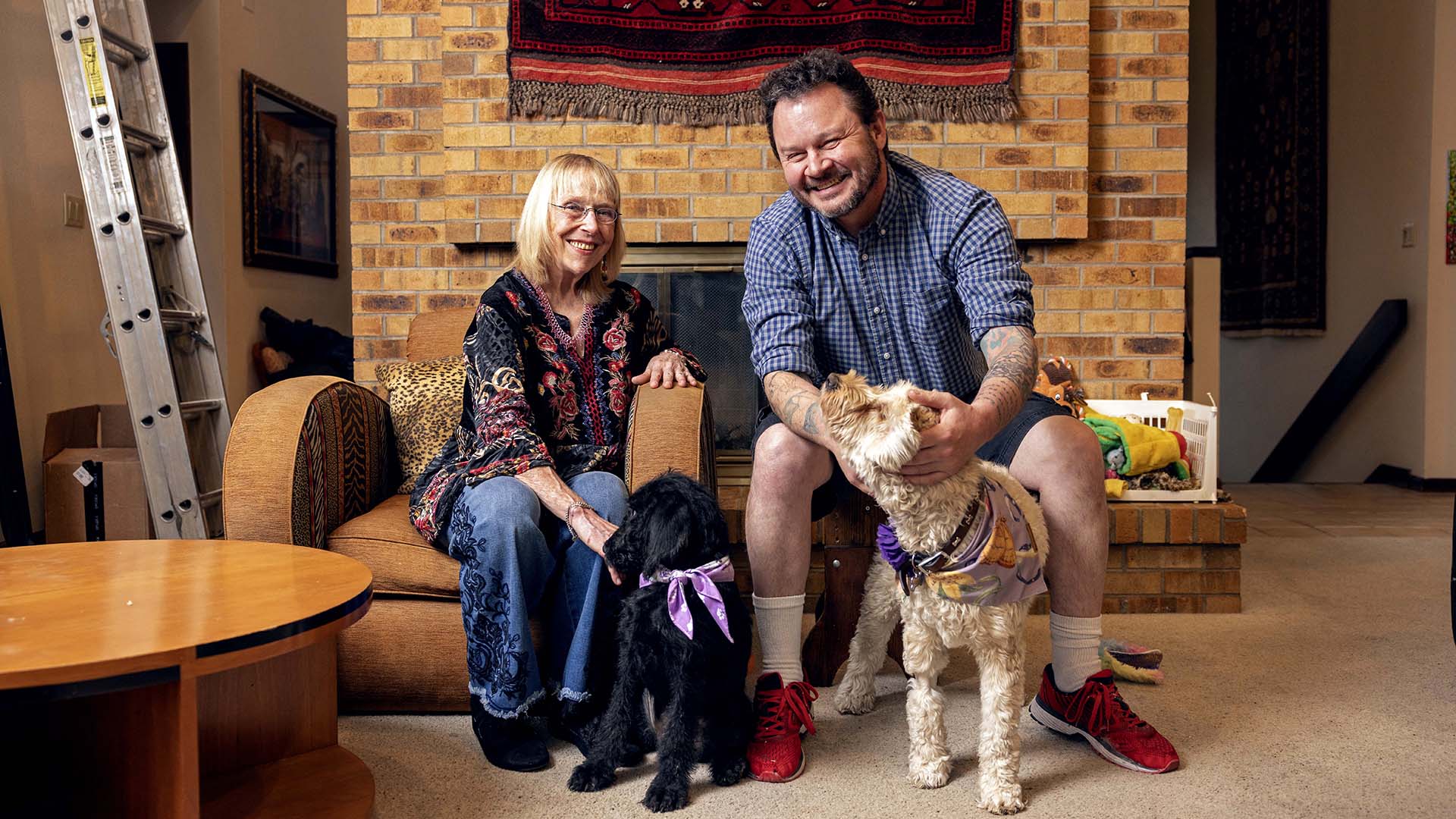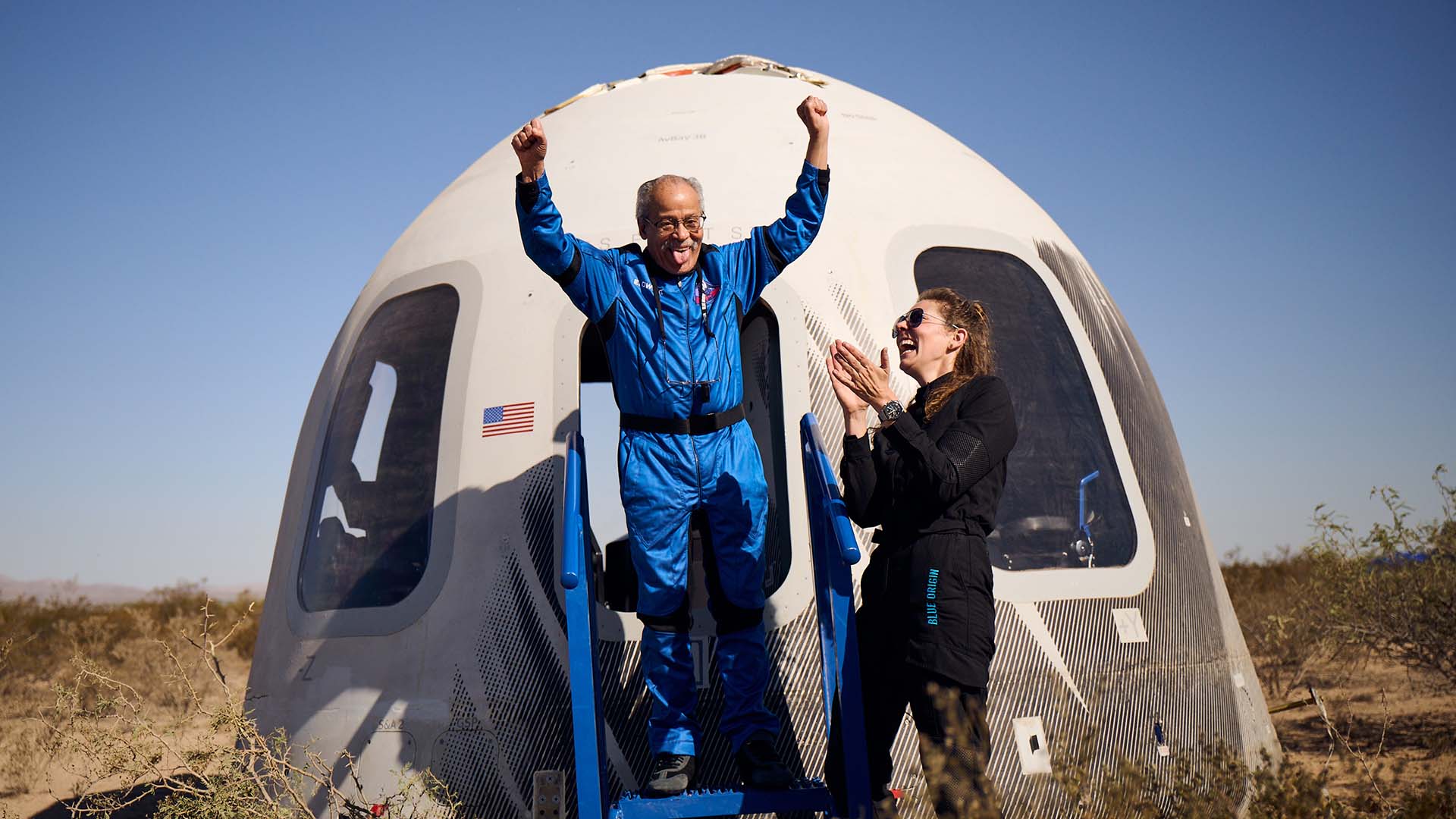MSU Denver’s first student-housing building promises to transform campus life
Summit House, a new 12-story mixed-use residence hall, is expected to be completed in 2027.
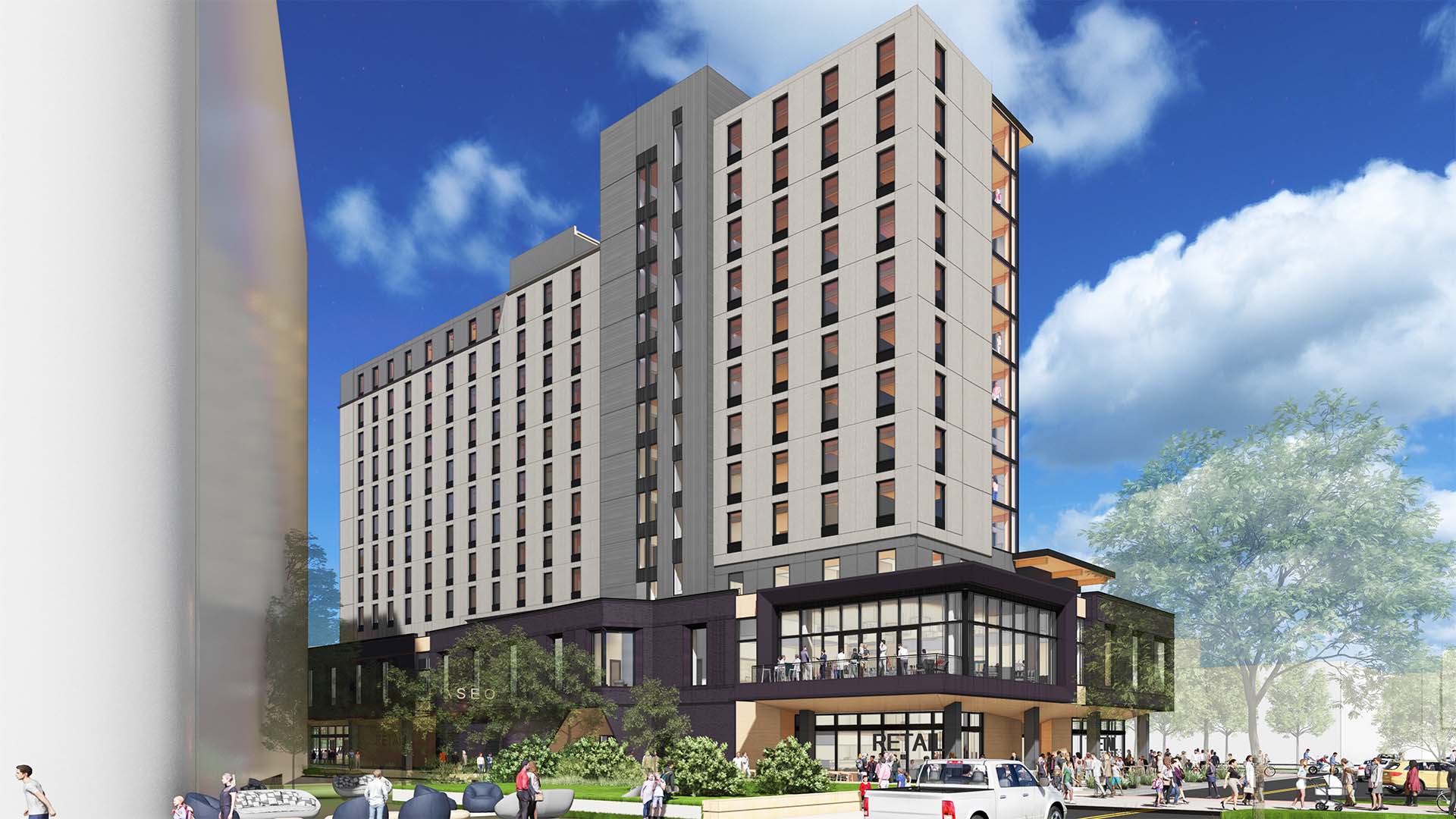
In a major milestone for a University historically focused on serving commuter students, Metropolitan State University of Denver is marking its 60th anniversary by developing its first University-owned student residence hall. The mixed-use, on-campus development promises to transform the student experience on the Auraria Campus in downtown Denver.
University leaders said the project will create a more vibrant and community-centric campus environment while also addressing concerns about the availability of downtown housing options for students.
“This milestone project is about more than bricks and mortar,” said MSU Denver President Janine Davidson, Ph.D. “It’s about transforming the student experience and reimagining what it means to be a Roadrunner in the heart of Denver. We’re creating a downtown campus where learning doesn’t end in the classroom; it continues where students live, work and connect.”
Construction is expected to begin this summer on Summit House, a 12-story, $117 million student-housing building that will be built on a 2-acre parcel at 12th Street and Auraria Parkway, across from Ball Arena on the former MSU Denver baseball field. The building is expected to be completed in 2027.
“This student housing will be a game-changer for MSU Denver and downtown Denver,” said MSU Denver Trustee Jerry Glick. “This investment brings students into the heart of the city, where they’ll live, learn and launch their careers — right across from Ball Arena. It’s a smart use of real estate and an even smarter investment in student success.”
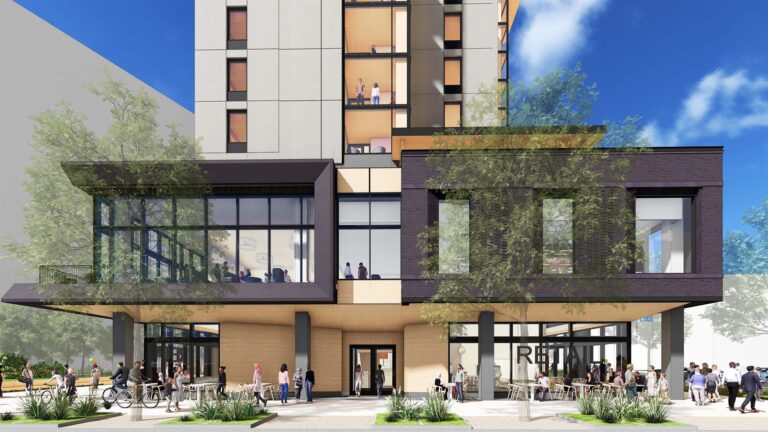
Plans for the project, which were unanimously approved by the University’s Board of Trustees June 13, call for 550 student beds on the upper 10 floors. Retail space will be located on the first floor; the Classroom to Career Hub, known as the C2 Hub, will be on the second. The C2 Hub is MSU Denver’s signature workforce initiative that connects students with career opportunities through innovative faculty and industry partnerships.
“Housing supports the University’s mission to make higher education more accessible,” said Will Simpkins, Ed.D., vice president of Student Affairs. “We’re in our 60th year. If you think about where we want to be at 75, what we’re doing now will help us realize that future vision for the University.”
The University is working with developer Columbia Ventures and Shears Adkins Rockmore Architects, which has released new renderings of the building. The new student residence hall is the first phase of a two-building Living and Learning Hub that will include a second 12-story building. A project of the Auraria Campus, also with partner Columbia Ventures, the second structure would provide more than 300 workforce housing units, which would be offered to income-qualified residents, including campus community members. It also would also serve as the new home of the Auraria Early Learning Center, a child-care center currently located on the south side of campus.
“This project sets the tone for development west of Speer Boulevard, creating a vibrant, community-centered environment that connects campus and city through housing, academics and entertainment,” said Iván Anaya, president of the Mountain West division of Columbia Ventures.
“This moment marks more than a transaction — it’s a bold step forward for the Auraria Campus and the communities we serve,” added Colleen Walker, Auraria Campus CEO. “As the first multiuse, high-density project on campus, it brings the 2024 Auraria Campus Framework Plan to life. We’re committed to turning this opportunity into lasting progress rooted in equity, collaboration and sustainability for our campus and downtown Denver.”
RELATED: New program opens doors for students, employers looking to address affordable-housing shortage
MSU Denver is poised to invest a total of up to $135 million in infrastructure that will enhance the campus and students’ experience. Along with constructing the student residences, the University will expand and upgrade sports, recreation and event space inside the Auraria Event Center.
The University will fund the student housing portion of the construction through debt, which will be repaid using revenue generated by the residence project itself. Meanwhile, funding for the C2 Hub will come from multiple sources, including more than $9 million in private donations and an anticipated $6.6 million investment from the State of Colorado. University officials said the projects will not impact student tuition and fees or the University’s operating budget and that the University will remain in a strong financial position.
“Even with this debt issuance, MSU Denver will remain the second-lowest (public institution of higher education) in debt per student in the state,” said Trustee Laura Pinnie, chair of the board’s Finance and Audit Committee.
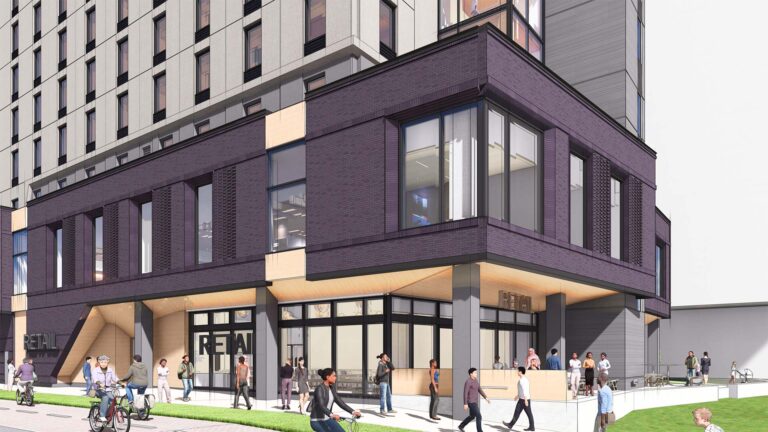
MSU Denver’s student-housing building is projected to be self-sustaining in its first year and to begin making meaningful financial contributions to University wide initiatives by year four. University administrators are confident that there is sufficient student demand to fill the building, said Jim Carpenter, MSU Denver vice president for Administration and Finance. One-third of MSU Denver students who participated in a recent survey commute more than 40 minutes to campus, and more than 70% who rent or live with family members expressed interest in living on campus.
The Living and Learning Hub not only will address a longstanding need but also will enhance the entire campus experience, Simpkins said.
“We truly believe the Auraria Campus can become a destination campus where students and other members of the community will spend more time beyond coming and going to class,” he said.

